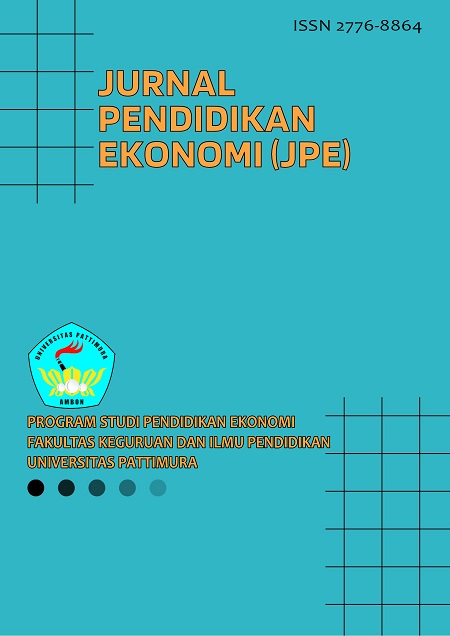Implementasi Model Blended Learning dalam Perkuliahan di Program Studi Pendidikan Ekonomi FKIP UNPATTI
Implementation of the Blended Learning Model in Lectures at the Economics Education Study Program, FKIP UNPATTI
Abstract
The shift in learning models due to the pandemic has driven higher education institutions to adopt blended learning as an adaptive alternative. This study aims to describe the implementation of the blended learning model in lectures at the Economic Education Study Program, FKIP Pattimura University, focusing on three main aspects: planning, implementation, and assessment. Using a qualitative descriptive approach through observation, interviews, and document analysis, the study reveals that instructional planning covers key components including objectives, methods, and assessment. The implementation follows the stages of seeking information, acquiring information, and synthesizing knowledge. Evaluation addresses cognitive, affective, and psychomotor domains through various assignments and examinations. These findings highlight the importance of institutional and lecturer preparedness in managing blended learning effectively. The implication is that universities should develop standard policies for implementing blended learning and provide infrastructure support as well as ongoing pedagogical training for faculty members
Downloads
Copyright (c) 2022 SILVIA MANUHUTU, AMJAD SALONG, FRANKLIN UBRA

This work is licensed under a Creative Commons Attribution-NonCommercial 4.0 International License.












